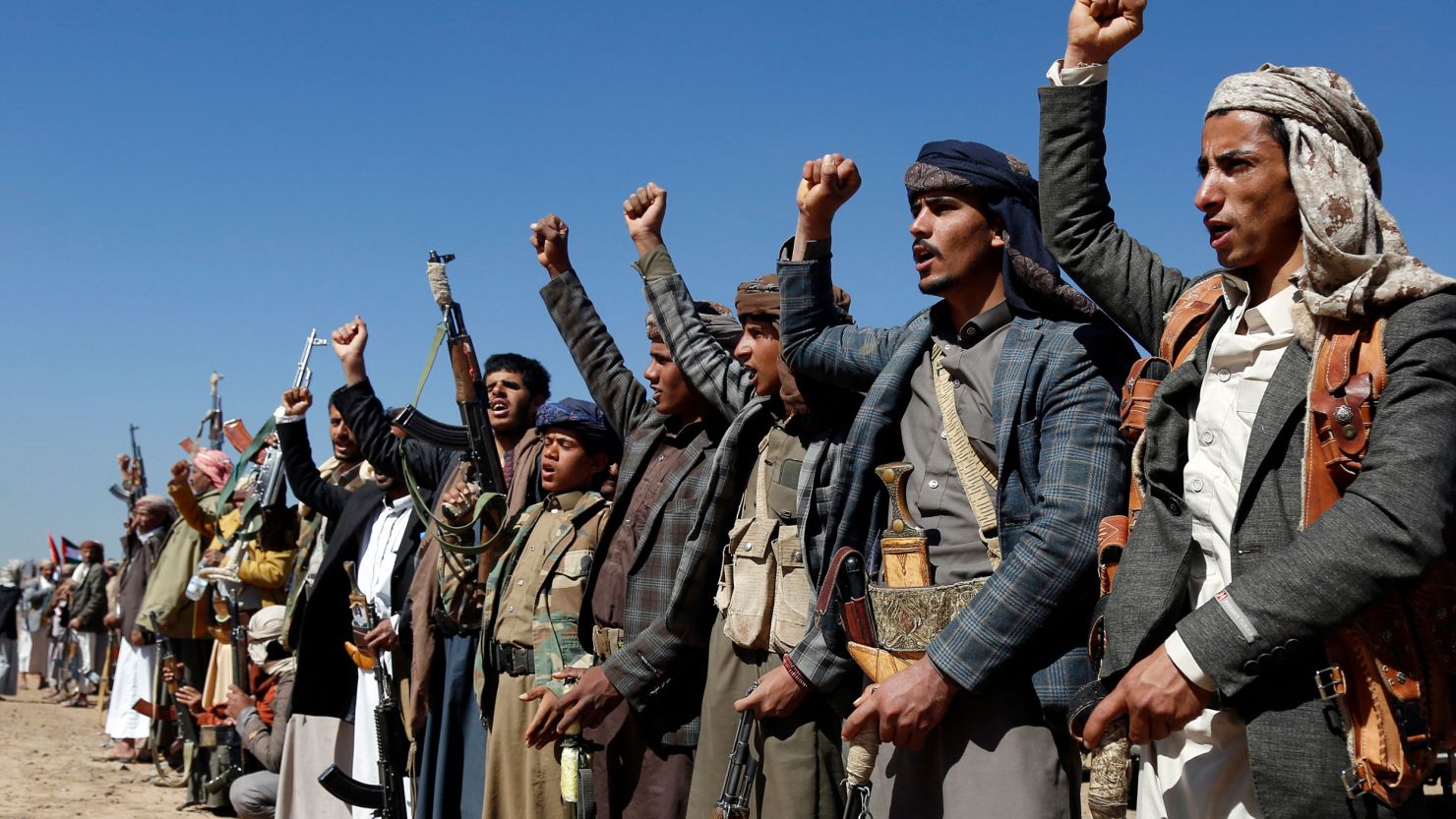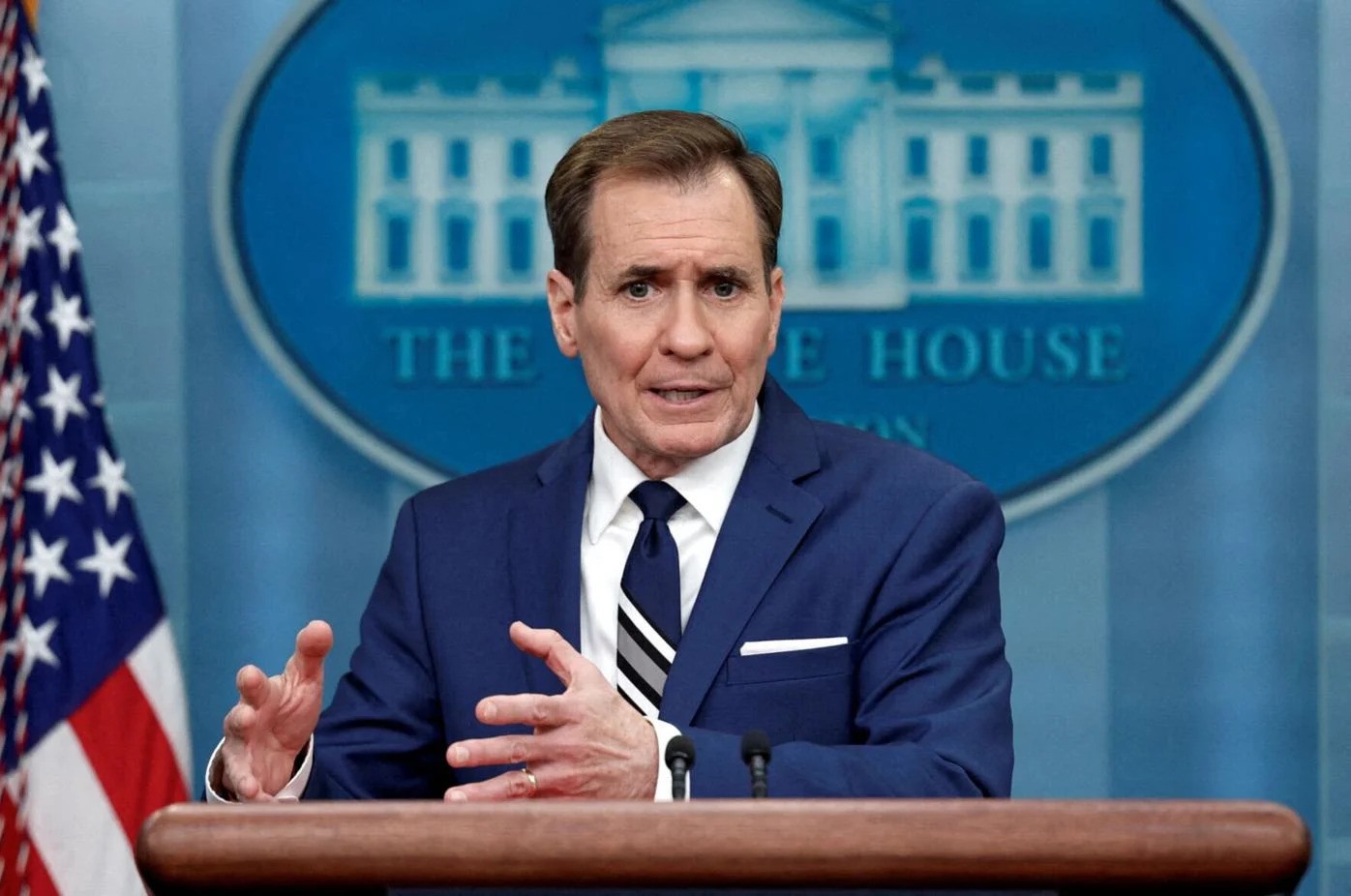Biden Administration Renews Houthi Rebels As Specially Designated Global Terrorists
Biden administration renews Houthi rebels as Specially Designated Global Terrorists (SDGT) entity, citing the Yemen-based militia's persistent attacks. The move is intended to dissuade the Houthis from their ongoing aggressive activities in the Red Sea.
Author:Rhyley CarneyReviewer:Paula M. GrahamJan 17, 20241.8K Shares34.7K Views

Biden administration renews Houthi rebels as Specially Designated Global Terrorists (SDGT) entity, citing the Yemen-based militia's persistent attacks. The move is intended to dissuade the Houthis from their ongoing aggressive activities in the Red Sea. This action is part of a broader series of measures taken by the United States against the Iranian-backed group and comes at a time when the potential for a broader regional conflict in the Middle East is a significant concern.
“„These attacks are clear example of terrorism and a violation of international law and a major threat to lives, global commerce, and they jeopardize the delivery of humanitarian assistance.- A US senior administration official
In February 2021, the Biden administration removed the Houthis' Special Designated Global Terrorist (SDGT) designation and delisted them as a foreign terrorist organization (FTO), a move made by the Trump administration in its final weeks. Secretary of State Antony Blinken explained that the decision aimed to ensure the delivery of essential assistance to the people of Yemen, recognizing the dire humanitarian situation in the country.
Despite this, mounting pressure on the administration to reinstate the designations has emerged amid Red Sea attacks by the Houthis, who claim retaliation for the Israeli military offensive in Gaza. These attacks have disrupted global trade by effectively closing a major trade route for most container ships.
Notably, the administration chose not to reclassify the Houthis as a foreign terrorist organization. While both designations result in economic sanctions, only the FTO designation imposes a travel ban on group members and sanctions on those giving "material support," as per the State Department's definition.
"We believe that the SDGT designation is the appropriate tool at the moment to pressure the Houthis," said the senior administration official. The official said that the SDGT designation allows "better flexibility" to target the Houthis while minimizing the risk to humanitarian aid.
The re-imposed SDGT designation is set to take effect 30 days from Wednesday, according to an official, allowing time to establish robust humanitarian carve-outs. This precaution aims to ensure that the action targets the Houthis and not the people of Yemen.
Another senior administration official stated that outreach to organizations involved in humanitarian aid to Yemen will be conducted during the 30-day period. As of 2023, the World Food Programme reported that 21.6 million people in Yemen needed such assistance.
The officials clarified that the designation is not intended to impact the delicate truce in Yemen between the Houthis and the Saudi-led coalition.
John Kirby, National Security Council Coordinator for Strategic Communications, said that the decision was designed as a flexible form of economic pressure, with the administration being able to withdraw it if the Houthis cease their attacks on commercial vessels in the Red Sea.
“„The thing about sanctions designations is that they are a pliable form of economic pressure. You can scale them up, you can scale them down, you can lay them on, you can take them off in a fairly simple way. If they choose to stop these attacks, then we certainly have the option at our disposal to remove this designation that we just issued.- John Kirby
Kirby emphasized that President Joe Biden does not express regret for removing the Houthis' designation as a Foreign Terrorist Organization upon taking office in 2021. According to Kirby, the president made this decision to address the "dire, dire humanitarian situation on the ground" in Yemen.
Additionally, administration officials contended that the terrorist designation is a component of a more extensive effort aimed at compelling the Houthis to cease their attacks in the Red Sea.
"If we saw a cessation of Houthi attacks on ships, we are willing to look at this designation is very much targeted on that specific terrorist behavior. We also would be willing to look at it not coming to effect if the Houthis stopped tomorrow," the first official said. "We are absolutely targeting the cessation of these attacks, rather than a broader suite of behavior with these sanctions."
On the preceding Thursday, the United States and the United Kingdom initiated airstrikes against Houthi targets situated in Houthi-controlled regions of Yemen. President Biden stated that he ordered the strikes "in direct response to unprecedented Houthi attacks against international maritime vessels in the Red Sea," emphasizing his willingness to take further measures to safeguard people and ensure the unimpeded flow of international commerce.
After the initial strikes, the U.S. has conducted additional military actions against the Houthis. Administration officials consistently assert that these actions are defensive, refraining from characterizing them as escalatory.
Conclusion
“„When the Houthis started these attacks, we pressed very hard for them to stop, but without escalation of any kind. This has been an attack on international commerce, international shipping, not an attack on Israel, not an attack on the United States. That's why more than 40 countries came together to condemn what the Houthis were doing. It's why other countries came together to say, if this continues, there are going to be consequences, not for purposes of escalating, but for purposes of getting them to stop. We've not wanted to see escalation anywhere since October 7. We're working every single day to prevent it, including in the Red Sea.- Secretary of State Antony Blinken
Jump to

Rhyley Carney
Author

Paula M. Graham
Reviewer
Latest Articles
Popular Articles
